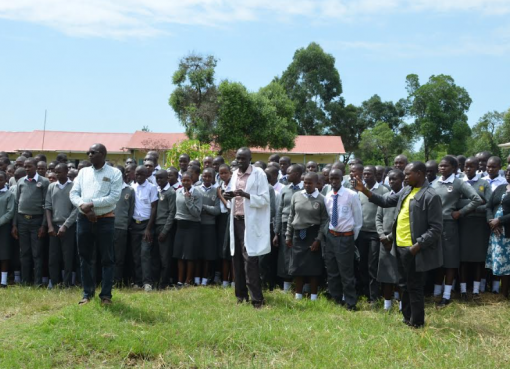As communities in Africa continue to grapple with the devastating impacts of climate change, experts are pushing for the integration of climate change information into higher education curricula.
The specialists drawn from various fields during a webinar series to delve into the challenges and opportunities of incorporating health and climate change into university curricula were informed that the initiative would prepare young people for a future shaped by climate change.
They pointed out that climate change has posed substantial impacts on humanity, and the effects are expected to become more extreme in the coming decades.
The goal of enhancing access to educational resources on climate change is to prepare citizens to be aware of catastrophes associated with climate change, be capable of reducing possible risks, and manage disasters.
The meeting underscored the ongoing efforts to bridge the gap between the health and environment sectors, referencing milestones such as the 2008 Libreville Declaration on health and environment and the 2011 World Health Organisation (WHO) document on climate change and health.
Ms. Melvine Otieno, representing the Planetary Health Eastern African Hub, underscored the urgent need to bridge the knowledge gap among university students, citing an ongoing collaborative project with the University of Eldoret and the Catholic University of Allied Sciences in partnership with Germany’s Wurzburg University.
“Our ongoing project, Strengthening One and Planetary Health (SOPHEA), seeks to provide educational resources for institutions looking to incorporate climate change and planetary health themes,” explained Ms. Otieno.
The project’s primary goal is to create an educational toolbox tailored to university curricula, equipping future graduates with a comprehensive understanding of the intricate relationship between climate change and health and empowering them to effectively address these interconnected challenges.
Ms. Leah Aoko, a policy associate from Africa Research and Impact Network, echoed the importance of addressing the information gap, asserting that equipping future policymakers with an understanding of the interconnections of climate change and health would lead to the development of progressive and inclusive policies, particularly those that benefit vulnerable populations.
However, Prof. Brama Kone’, the regional officer in charge of WHO in Africa, pointed out that the challenge of securing political goodwill, funding, and commitment to advance the set agendas during the United Nations Framework Convention on Climate Change (UNFCCC) was a major problem.
“We’ve had 25 UNFCCC conferences, and it took until the 26th COP to establish the COP 26 Health Initiative. This initiative is still striving to gain the necessary political leadership, funding, and commitment to address the intersection of climate change and health,” emphasised Prof. Kone.
The experts stressed that the pressing need for global action to bridge the knowledge gap and empower future leaders to address the intertwined challenges of climate change and health involves raising awareness, securing political support, and allocating resources to address the menace and secure a sustainable future.
By Feliciah Wanyonyi and Robert Ojwang’





